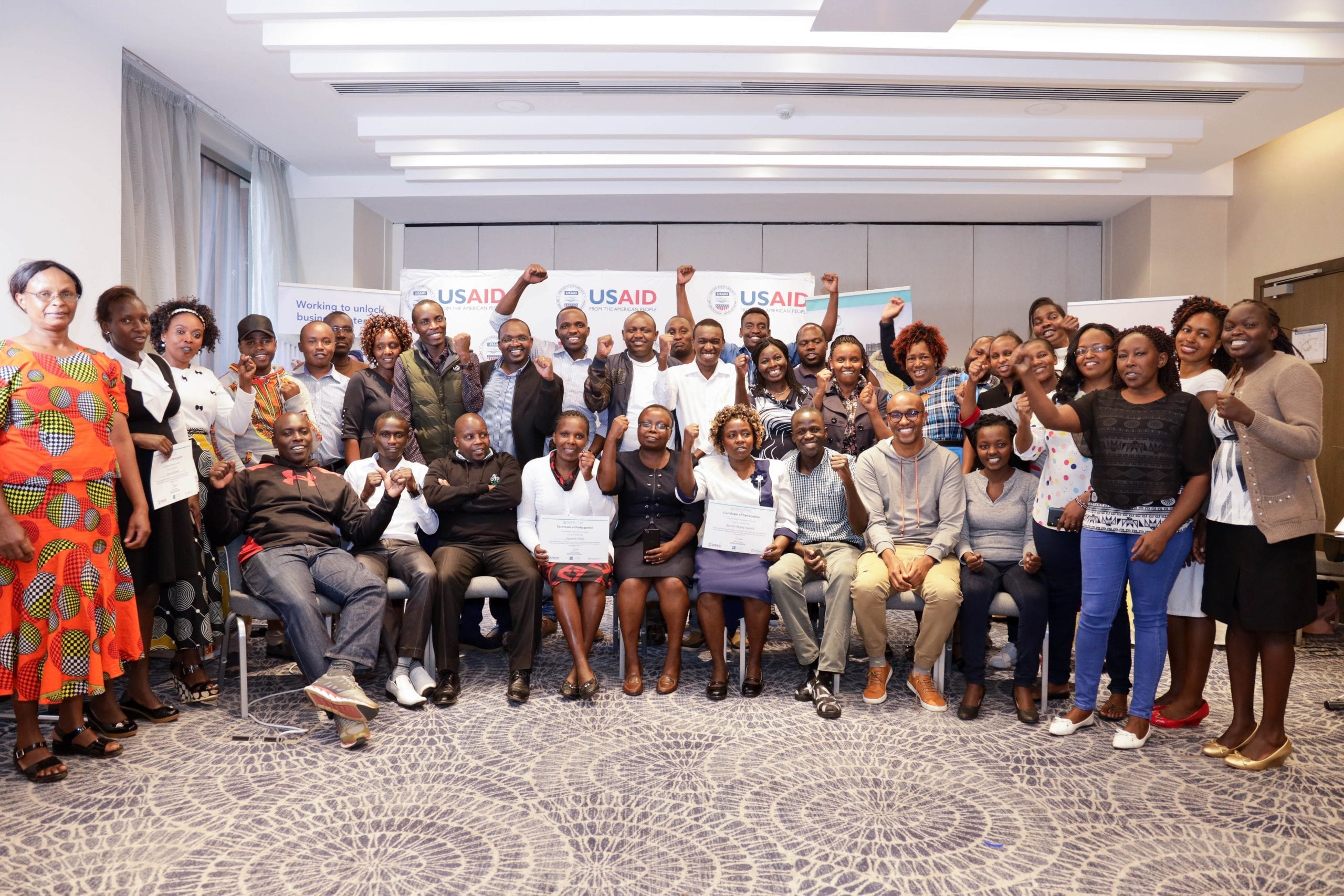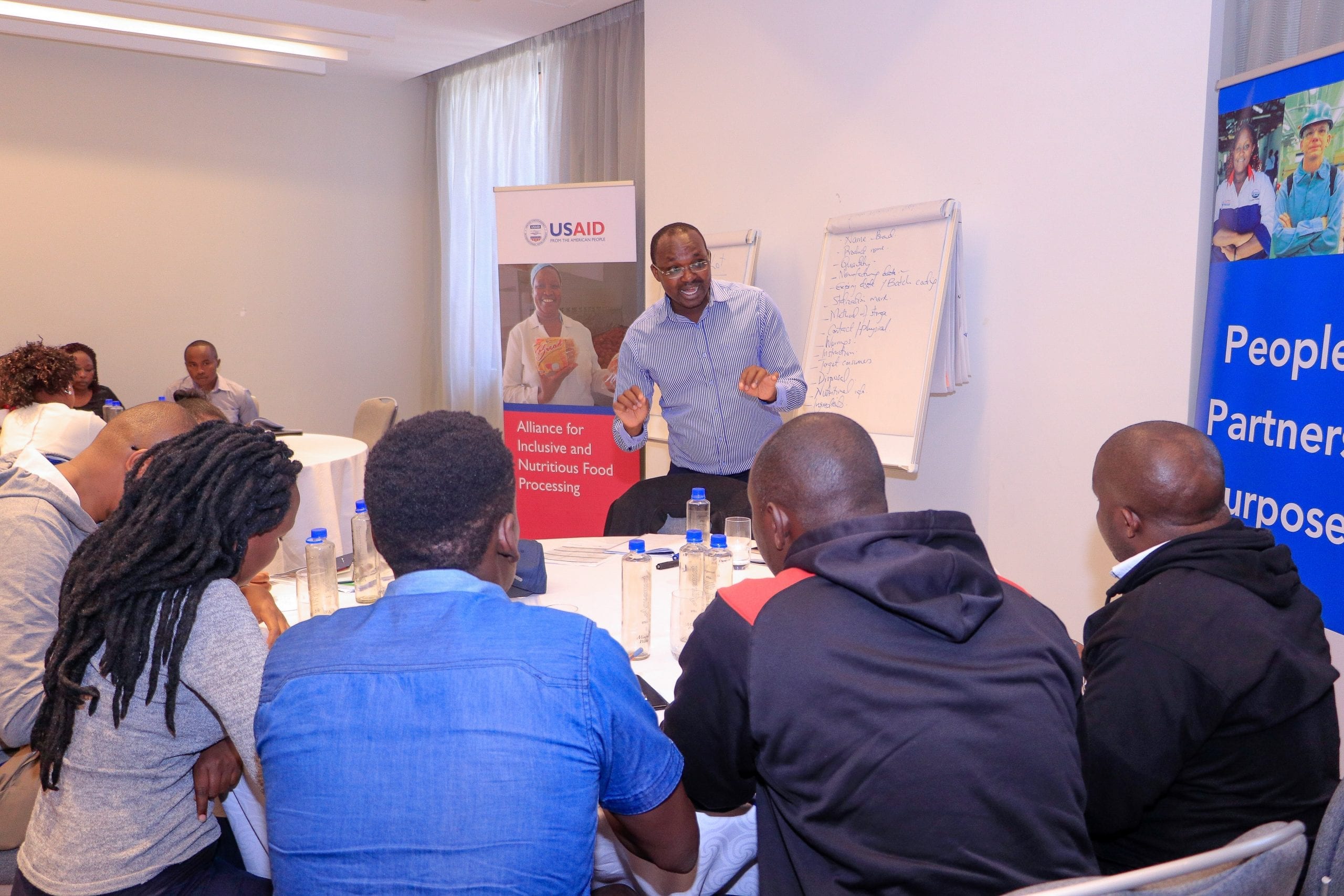Changing Employee Behavior to Improve Food Safety Across Africa
To commemorate World Food Safety Day, we take a look at how creative food processor trainings are helping improve consumer safety in Africa — and prove especially important during the COVID-19 pandemic.

Editor’s Note: This blog was originally published on Agrilinks.
Many of us take for granted the safety of the food we consume every day. But roughly 425,000 people per year are not so fortunate. That’s the number of people who die annually from foodborne illness around the world — more than 1,000 a day. Children under five comprise over a third of these mostly preventable deaths. And Africa is particularly hard-hit, with the world’s highest per-capita rate of foodborne illness.
World Food Safety Day on June 7 shines a spotlight on this critical but often underreported problem, one that requires complex and creative solutions. In Kenya, Tanzania, Zambia, and Ethiopia, TechnoServe is addressing the issue in partnership with the U.S. Agency for International Development (USAID) and the nonprofit consortium Partners in Food Solutions (PFS) through the Alliance for Inclusive and Nutritious Food Processing (AINFP) project. This initiative, which helps African food processors improve the nutrition, safety, and quality of their products, identified food safety as one of the most important challenges to address with the processing companies.
Many companies have good intentions when it comes to food safety, but either lack knowledge of best practices, or don’t see the direct return on investment in finding ways to improve food safety at their facilities. TechnoServe staff realized that lasting improvement would come down to individual behavior change — which meant helping food processing employees appreciate and implement better safety practices in their daily routines.
So we rolled out an ambitious sector-wide training initiative, drawing hundreds of food processing employees from each of the four countries to participate in a combination of in-person conferences and digital assessment and tracking platforms. The goal? To transform ordinary employees into “Food Safety Champions.”
Through lectures, videos, skits, and even songs, participants learned the latest standards for food safety: from personal hygiene to pest control to waste management. The involvement of so many other staffers from other companies provided tacit peer validation of the importance of food safety, an important component in changing behavior.

“The training has been an eye-opener,” said Eliud Kinyanjui, who works in the quality assurance department of Kenya Nut. “We have learned that we must create a very good food safety culture…so the food that gets to consumers is safe for consumption and will not have any harm to their health. What I’ll take home from this training is that I should take responsibility for the actions that I do, especially during the production of products based in my department.”
Milimo Changulo, quality manager at Ross Breeders Supreme Chicken in Zambia, noted that it was helpful to interact with others in the industry and share ideas. “This is going to help a lot of SME [small- and medium-sized enterprise] industries because they have an opportunity now to be food safety champions in the industries they are coming from,” he said. “Knowledge is power, and they feel empowered. When somebody is empowered, it is very easy for them to give power to others and grow food safety for the benefit of the whole country.”
The shift in behavior and culture was noticed immediately when many employees returned to work — solidifying the value of the training in the eyes of company management. “You can pick out the stark difference between those that attended the [TechnoServe] training and those that did not,” reported David Waithaka, a quality assurance manager at Kenya Nut. “You can also see differences in the workplace in food safety issues. The trained staff are confident while tackling food safety issues; they are self-driven, and they manifest a much more superior understanding of food safety issues. If finances allowed, I would like to send each and every food handler in this organization to the training.”
We have learned that we must create a very good food safety culture…so the food that gets to consumers is safe for consumption and will not have any harm to their health.”
— Eliud Kinyanjui
At Kenafric Industries in Kenya, General Manager of Manufacturing Laban Kabiru noticed a 23% improvement in the company’s Good Manufacturing Practices scorecard since employees attended the training. “The factory looks different in terms of cleanliness, housekeeping and waste management,” he added, “all because of the change in mindset brought about by the training.”
World Food Safety Day this year falls at a particularly important time, as personal hygiene, protective equipment, and safety protocols are all key defenses against COVID-19. Food processors whose employees participated in the training have already reported applying these lessons as part of their effort to prevent the spread of the disease. At a dairy facility in Kenya, one quality assurance manager noted that personnel frequently failed to don proper personal protective equipment (PPE) — but since the training, he has personally ensured that each employee is wearing a new set, and conducts frequent checks to ensure the PPE cleanliness.
In Zambia, Lactalis plant manager Lloyd Banda found a similar effect. Not only had employees improved their basic food safety knowledge, he said — but “the training prepared our staff for the COVID-19 pandemic.”




